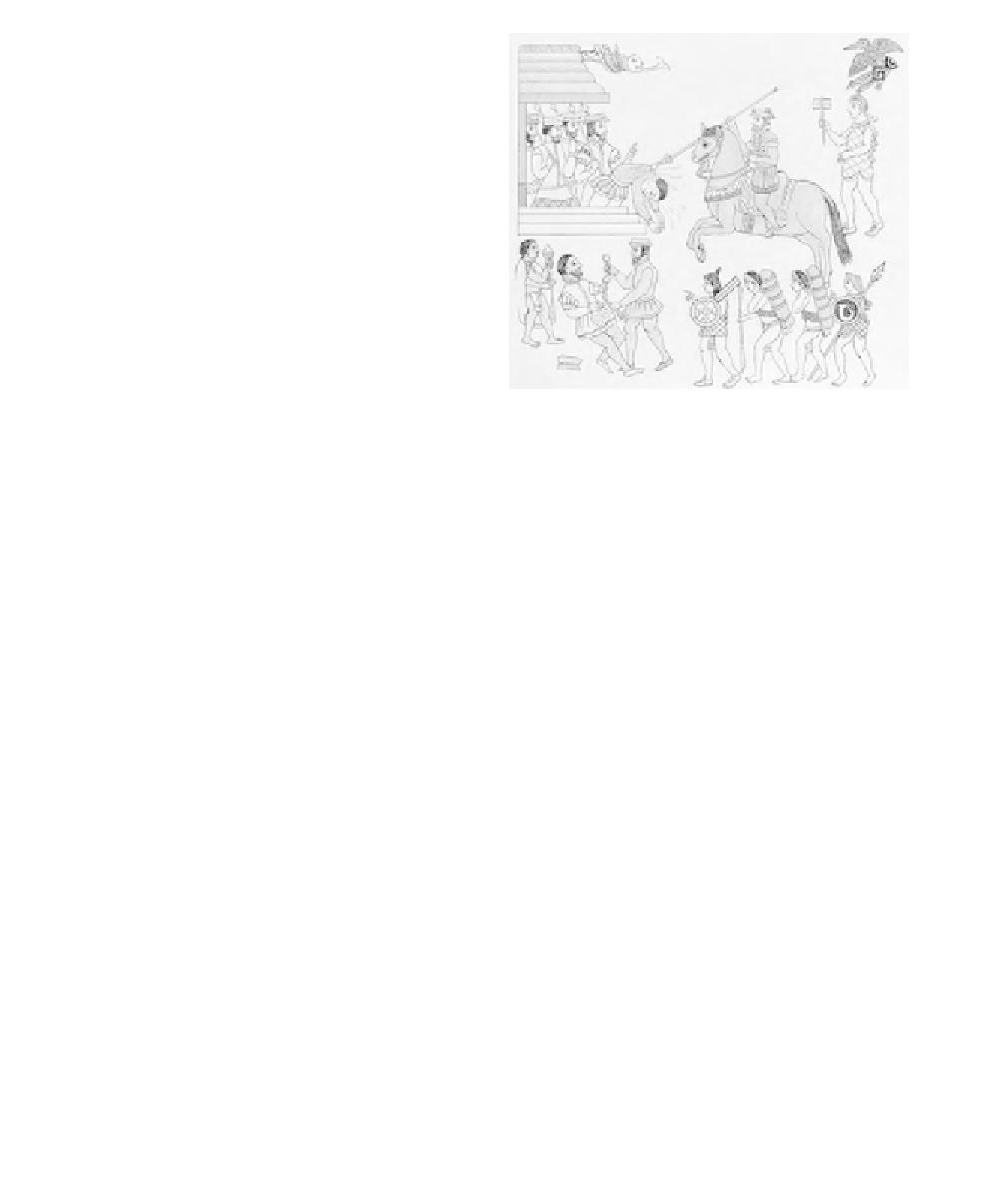Travel Reference
In-Depth Information
the Gulf of Mexico) and having himself
designated by that body as captain general
with independent authority to pursue his
own designs. Cortés hastened back to the
coast with half of his troops where he was
confronted by a large force under P
ÁNFILO
DE
N
ARVÁEZ
, who had been authorized to
arrest him. Adroitly spinning out negotia-
tions about how to resolve the situation,
Cortés lured away most of the new arrivals
with tales of Aztec gold. He then attacked
and defeated Narváez and marched back to
Tenochtitlán. However, the state of affairs
in the Aztec capital had deteriorated under
P
EDRO
DE
A
LVA R A D O
, with Moctezuma now
rejected by his own people as a collabora-
tor and the Spaniards hated as oppressive
and greedy invaders rather than messen-
gers of the gods. Attempting to escape from
the city with their loot, Cortés's men were
attacked and suffered heavy losses as they
crossed the leading causeway over the lake
that surrounded the city. The Noche Triste
(sad night) of June 20, 1520, brought
heavy losses to the Spaniards, who finally
fought their way through to the safety of
Tlaxcalan territory.
Resilient as ever, Cortés rebuilt his army
with Spanish soldiers and Indian auxiliaries
and laid siege to Tenochtitlán. With Mocte-
zuma dead, his successor weakened by
rivalries within his own ranks, and the pop-
ulation of the city stricken by famine and
disease, Tenochtitlán fell (August 13, 1521)
and with it the Aztec Empire.
In the years that followed Cortés received
titles of nobility and accumulated a great
fortune. Expeditions organized by him
explored much of Mexico, G
UATEMALA
, and
H
ONDURAS
and conquered remnants of the
Aztec elite, seizing their wealth. Cortés
himself crossed to the Pacific shore and
Combat between Hernán Cortés and Pánfilo de
Narváez
(Library of Congress)
sailed into the Gulf of California. The Span-
ish Crown nevertheless refused to grant
him full recognition of the rights he claimed
as discoverer and conqueror. Administra-
tors were sent out to displace and dominate
him, leaving him with honors that were
largely ceremonial. Cortés encountered a
similar denial of the full respect he felt was
owed to him when he returned to Spain in
the 1540s. He attempted to ingratiate him-
self with King C
HARLES
I (Emperor Charles
V) by taking part in an expedition against
the Muslim rulers of Algiers, but his days as
a soldier and a conqueror were over.
Although Cortés experienced the sort of
anticlimax that befell so many of his fellow
conquistadores once their services to Spain
were over, he at least emerged from his
adventures with his life and a goodly share
of material rewards. Moreover he earned
the lasting fame that motivated men of his
breed. From his overthrow of the Aztec
Empire sprang the conquest of the vast ter-
ritory of N
EW
S
PAIN
and the Spanish claim

Search WWH ::

Custom Search